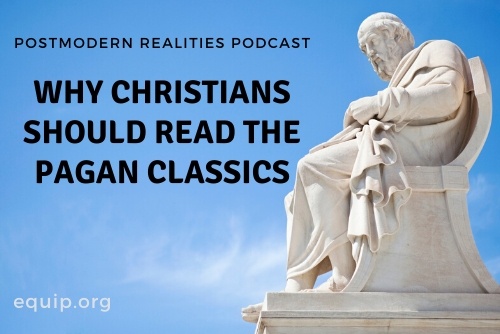Tertullian, the toughest and most uncompromising of early church fathers, once asked a question that is still with us today: What has Athens to do with Jerusalem? That is to say, is there— indeed, should there be—a meeting ground between the Judeo-Christian strain that proceeds out of Jerusalem and the Greco-Roman (humanist) strain that proceeds out of Athens As far as Tertullian was concerned, the answer to his question was simple: nothing. Nevertheless, despite Tertullian’s rejection of the link between Athens and Jerusalem, Christian thinkers for the past two millennia have continued to ponder his question. Can the basic tenets and chief embodiments of both Christianity and humanism be combined in a way that will pay homage both to the glory of God and the dignity of man, the truths of Christ and the wisdom of the ancients? What business does a Christian have devoting time and energy to reading works written by pagans who lacked the light of the Christian, or even the Jewish, revelation? Are not all the really important answers to be found in the Bible and the Sacred Tradition? Have not the pagan writers of the ancient world been so superseded by Christianity as to be irrelevant as sources of wisdom in the life of the believer?
When you to subscribe to the Journal, you join the team of print subscribers whose paid subscriptions help provide the resources at equip.org that minister to people worldwide. These resources include our free online-exclusive articles, such as this review, as well as our free Postmodern Realities podcast.
Another way you can support keeping our resources free is by leaving us a tip. A tip is just a small amount, like $3 or $5, which is the cost for some of a latte, lunch out, or coffee drink. To leave a tip, click here.
Hank Unplugged: How to Explain Hell with Louis Markos
The Legacy of G.K. Chesterton and Dorothy Sayers
